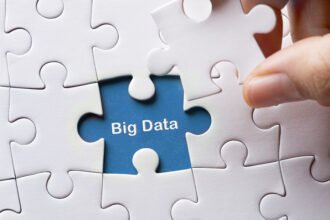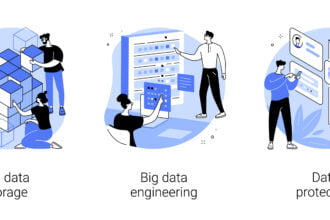Background checks have been used in some form or another for decades, long before the existence of big data. Companies first started showing an interest in background checks after an employer was sued in 1908 for employee negligence. However, big data has made them more comprehensive and reliable.
Before getting into it take a look at the article of The Columbian to see the best background check sites.
How Big Data is Changing the Nature of Background Checks
Big data is changing the field of background checks in numerous ways. Machine learning, artificial intelligence and other forms of big data technology are changing the way these searches are handled.
A lot of companies have talked about the importance of big data with background checks. HireRight is among them. They wrote a great blog on this topic and encourage employers to understand the role of big data with the screening process.
One of the biggest changes with background checks in the digital age is that the amount of information available is increasing. The person conducting the search can look at far more variables.
When an individual is the subject of a background check in the age of big data, the information provided can be as varied as the depth and thoroughness of the investigation. The data contained can be defined by parameters such as the purpose of the investigating party, the local laws in the country, state, or county where the check is performed, and the time frame and expense allowed for the background check procedure. Machine learning tools can refine this information even further.
The average general-purpose background check, at the minimum, will include:
- Identity verification
- Credit report
- Education and employment history
- Criminal records
Even these data parameters can vary. A landlord examining a lease application will care for little except the applicant’s credit report, while a candidate applying for a high-ranking public sector position will have a far deeper background check because of the stringent requirements for government clearance.
Big data tools will make even more parameters available in the future. The scope of these typical components of a background check is detailed below.
Identity verification
This is a cursory record only extending approximately as far as the typical process to open a bank account. Machine learning tools can make this verification process much easier, which wouldn’t have been possible without advances in big data and Hadoop data mining technology. It will include:
- Full name and known aliases
- Date of birth
- Social Security number
- Driver’s license or other valid picture ID
- Address and contact info
- Optional metrics such as mother’s maiden name
Credit report
Credit bureaus collect records on consumers, obtained from credit card companies, retailers, landlords, and various financial institutions. These reports vary from one resource to another, since there is no government-mandated credit-reporting infrastructure and the process is left entirely up to commercial companies. They are making the process more thorough with big data.
Credit reports usually have a “credit score,” which indicates the soundness of a subject’s credit history. Among the many factors which impact a credit score, there may be transaction histories, debts, applications, and defaults or instances of collection attempts.
An inquiry may itself impact a credit score. A “soft inquiry” is done for employment screening and won’t return anything but the score. A “hard inquiry” reflects an action such as a bank where the subject has applied for a loan. A hard inquiry can impact a credit score because a series of hard inquiries in a short period of time raises a concern about the subject’s financial solvency. Fortunately, artificial intelligence uses big data to differentiate between these inquiries to avoid hurting your credit score.
Education and employment
This will typically only come up in an employment screening. Degrees, certificates, and past employers are all usually self-reported by the candidate and verified by the investigating institution. All diplomas and credentials are a matter of public records governed by registration requirements within the education system, but employers must be individually phoned and verified one at a time. Big data makes it easier than ever to store and cross-reference educational records.
Criminal background check
A check of criminal records is one of the most fundamental components of a background check. This part of the investigation gathers data from courthouses, police departments, and correctional facilities at the federal, state, and county levels. Literally any brush with the law is subject to be reported here, albeit minor infractions are usually deleted by judges in cases where an otherwise law-abiding citizen experienced a moment of misjudgment.
Criminal record data may include any or all of:
- Arrests
- Warrants
- Convictions
- Sexual offender listing
- Major traffic violations
- Felonies and misdemeanors
- Inmate records
- Parole and probation records
- Penalties, fines, and other outcomes
One exception to criminal background checks is juvenile records. Criminal records obtained before an individual has reached the legal age of accountability in their region are automatically sealed. Even statutes such as the Freedom of Information Act cannot reveal juvenile criminal records.
Employers conducting criminal background checks must practice careful execution of the process of consideration. On the one hand, various constitutional liberties apply to the rights of all citizens, including those convicted of a crime. On the other hand, an employer who knowingly hires a subject with an applicable criminal record may be held liable to a third party should the subject, when employed, commit a criminal act in the position of their duties. This is a situation where companies need to look at data carefully. Big data could actually put them at risk here.
Social media?
In recent years, the practice of pursuing a subject’s social media data has become common. While laws do allow an investigator to check social media data, they are not seen as a reliable record. Social media accounts must be volunteered by the subject, who is at liberty to set up as many online aliases as they choose and disclose them at discretion. Likewise, there are no safeguards against a high-jacked online identity. In addition, there are laws concerning what information obtained from a social media search is allowable. For instance, US employers may not consider a subject’s personal views and opinions, or state of gender identification, marital status, or sexual orientation.
Further optional lines of inquiry
Background checks can also include further research on a subject depending on the case and needs of the investigator. The information they can collect with big data can include:
- Character reference – Interviewing persons who know the subject
- Military records – If the subject has served in the military
- Motor vehicle and registration
- Passport or visa – If the subject has been out of the country
- Drug screening
Each of the above may only pertain in specialized cases, such as when an employer screens a candidate applying for a position where they will operate motor vehicles or other heavy equipment.
Big Data Makes Background Checks More Thorough
There are a lot of benefits of big data. One of the biggest breakthroughs is that big data technology is making background searches much more thorough.









